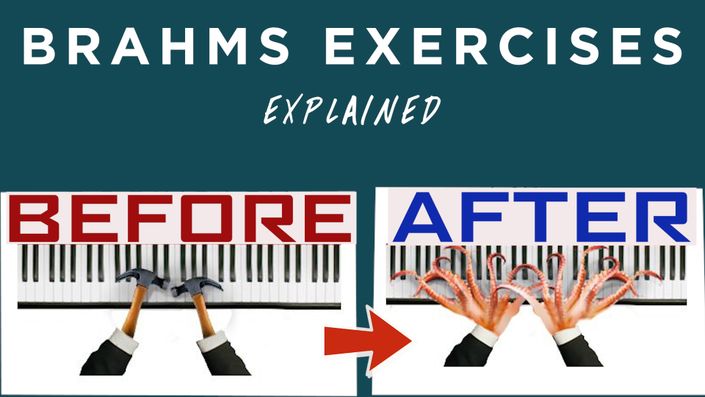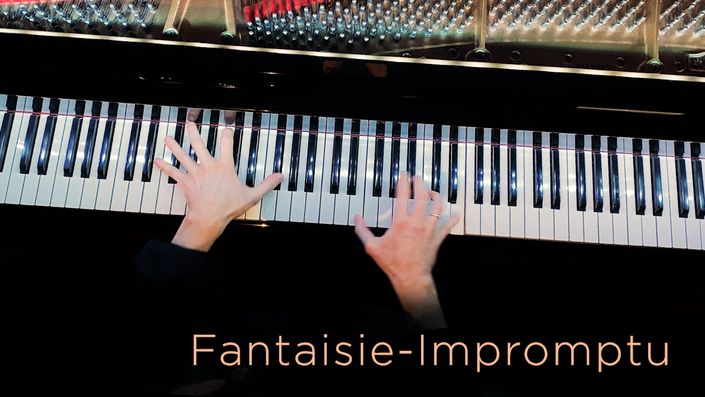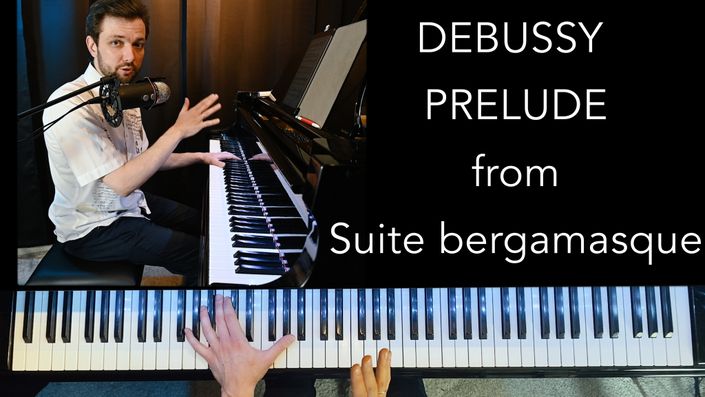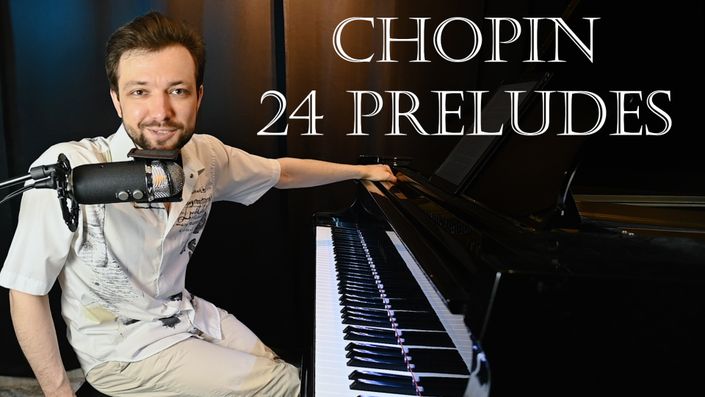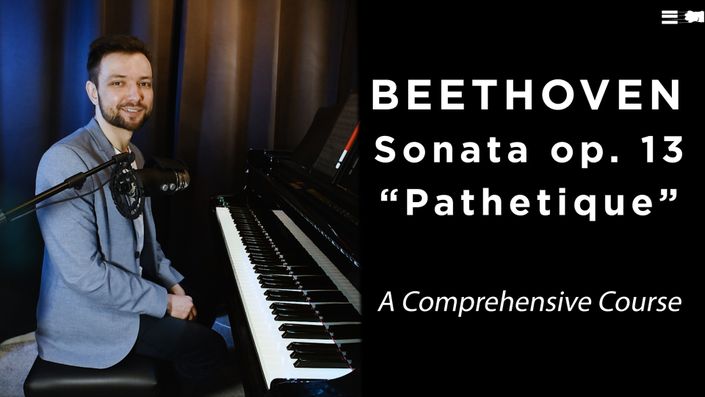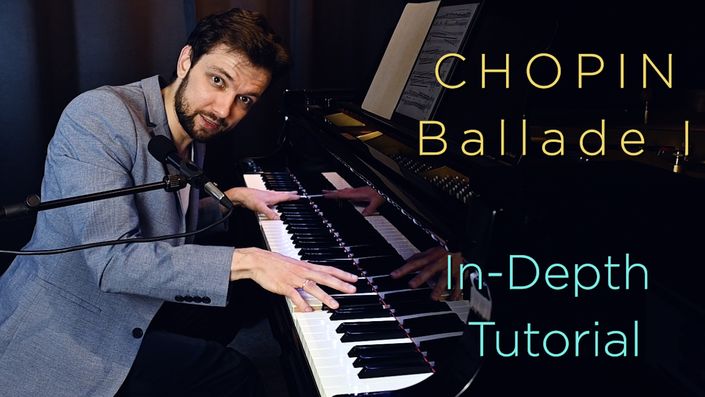
Piano Technique Mastery Course
Welcome to a transformative piano learning experience. This course is not just a set of lessons; it’s an ultimate system designed to build or rebuild your piano-playing technique from the ground up. Whether you’re starting fresh or refining years of experience, this program provides the tools and guidance to unlock your full potential as a pianist.
Who is this course for?
This course is tailored for ambitious piano learners who:
- Can dedicate at least 1 hour a day to piano practice.
- Know basics of piano playing / can read notes
- Are seeking a structured path to maximize their skills.
- Wish to develop a safe, sustainable, and effective technique.
- Want to overcome technical limitations or recover from piano-related injuries.
It’s suitable for late beginners looking to establish proper technique, as well as advanced pianists encountering challenges or seeking deeper refinement.

What you will learn
This course breaks down the art of efficient piano playing into actionable steps and covers:
- Hand and sitting position
- Use of gravity and tension management
- Relaxation and finger strengthening
- Whole-arm coordination
- Dexterity boosters and universal learning strategies
- Training in octaves, thirds, scales, arpeggios, repeated notes
- Techniques for playing softly but quickly, mastering trills, and more
Advanced learners will benefit from a dedicated section featuring detailed tutorials on 10 of Chopin’s etudes from Op. 10 and Op. 25, as well as 5 famous works of Rachmaninoff.
How you will learn
Each concept is introduced using pieces suitable for late beginners, with additional advanced examples for intermediate and advanced pianists. You won’t just practice exercises; you’ll apply techniques to excerpts from inspiring works by composers such as Bach, Mozart, Scarlatti, Beethoven, Chopin, Rachmaninoff, Tchaikovsky, and more.
The course includes subtitles in English, French, Portuguese, and Italian for a more accessible learning experience.
A direct link to free PDF scores is provided for your convenience.
Text summaries are included to help you organize and retain key concepts.
Enjoy lifetime access to all course materials—learn at your own pace, without time limits!
Personalized Feedback from Me
I guarantee that 95% of your possible questions about piano-playing technique will be answered within this course. To make this learning experience even more valuable, I offer personalized feedback to every student enrolled in the program.
Each student has the opportunity to submit a link to a short recording in the comments section, and I will provide either video or text feedback tailored to your specific needs and goals. This ensures you receive direct guidance on how to proceed further and achieve the best results.
How to Submit Your Recording
- Please wait at least 30 days after purchasing the course before submitting your recording. This gives you enough time to watch the video lessons and practice the foundational techniques.
- If you have a problem with a specific type of technique, please watch the relevant video lesson first and practice for 7-14 days, applying the tips from the video as closely as possible. If the issue persists, submit a short recording in the comments section of the relevant lesson dedicated to this type of technique.
- Feel free to record just your hands and arms. We value your privacy, so there’s no need to reveal your face or any private information. However, all recordings and feedback should be shared publicly in the comments section for the benefit of all learners. This way, we can build a community of passionate learners and study together.
I look forward to helping you refine your technique and guiding you on your journey to becoming the pianist you aspire to be!
Course duration
The program provides a clear structure for 4-8 months of focused practice, offering step-by-step guidance to ensure steady progress.
Why take this course?
By mastering these principles, you’ll gain a fantastically efficient piano technique while enjoying the journey with great music. Whether you’re aiming for technical brilliance, injury prevention, or a lifetime of joyful piano playing, this course will be your invaluable guide.
Curriculum
- FOUNDATION: Gravity Usage & Hand Position (8:24)
- (Beginner) Improve Gravity Usage Skills - Bach Little Prelude 1 (14:00)
- Bach Little Prelude No. 1 - Slow Demonstration (4:07)
- Bach Little Prelude No. 1 - Target Tempo (1:19)
- (Beginner) - Inverted Chords Training | Gravity Usage Training (6:10)
- (Late Beginner-Intermediate) Gillock - Seascapes (19:39)
- (Intermediate) Tchaikovsky - Little Horseman (14:26)
- Tchaikovsky Little Horseman - Efficiency (3:41)
- Tchaikovsky Little Horseman - Polishing the Piece (3:17)
- ❗BONUS: Loud but Noble Playing❗ (14:42)
- FOUNDATION - Single & Double Rotations (7:04)
- FOUNDATION - Elbow Micro-Impulses (alternative to the previous) (9:19)
- FOUNDATION - Three stages of playing a note (16:51)
- FOUNDATION - Tension in Piano Playing (7:21)
- Bach - Small Prelude | Slow Demonstration (1:26)
- Tension-Release | Mastering the skill (14:08)
- FOUNDATION - Move Smoothly Between Positions (9:34)
- (Intermediate) - Grieg "Elfentanz" (9:57)
- (Intermediate/Advanced) - Burgmüller & Chopin Etudes Examples (9:36)
- FOUNDATION - Valse Accompaniments, Chopin Valse B.150 (24:05)
- BONUS: Momentary Release Technique by Elina Akselrud (21:42)
- FOUNDATION - Forearm rotation (21:05)
- FOUNDATION - In-Out Motions (14:56)
- In-Out Motions: General Rules (11:34)
- (Beginner) In/Out, Rotation | Czerny op. 849 No.1-4 (16:30)
- (Beginner) In/Out, Rotation, Alberti Bass | Czerny op. 849 No.5-10 (14:41)
- (Beginner) - Forearm Rotation | Schumann Two Pieces from op. 68 (11:01)
- (Intermediate) - Bertini Etudes op. 29 No. 8&11 (5:30)
- (Intermediate) - Schubert Scherzo in Bb major (10:51)
- (Intermediate) - Lemoine Etude in E minor (12:38)
- (Intermediate) - Burmüller Etudes op. 100 No. 21 & 7 (10:12)
- (Intermediate) In/Out Motions | Grieg Popular Melody op. 38 no. 2 (7:50)
- (Intermediate) Burgmüller Etude op. 109 no. 6 (3:23)
- (Intermediate/Advanced) - Schumann Papillons op. 2 (4:07)
- (Intermediate/Advanced) - Mozart Sonata in A minor K.310 (12:37)
- (Advanced) ROTATION - Beethoven Sonatas: Pathetique, Moonlight, Appasionata (18:28)
- (Advanced) In/Out Motions & Alberti Bass | Beethoven Moonlight (6:28)
- (Advanced) Brahms Concerto no. 1 (4:42)
- (Advanced) Schumann Toccata op. 7 (3:32)
- SKILL: Scales (25:17)
- Further Scale Practicing Tips (9:36)
- SKILL: Short Arpeggios Training (11:37)
- FOUNDATION: Arpeggio Position Changes When Going Up (10:40)
- FOUNDATION: Arpeggio Position Changes When Going Down (3:17)
- 11 Types of Arpeggio - learning the notes (11:34)
- FOUNDATION - Long Arpeggios | Motion Coordination | 11 Types of Arpeggio (13:48)
- 11 types of arpeggio - Other keys Tips (1:17)
- (Intermediate) Concone Etude op.30 No.20 (3:43)
- SKILL: Arpeggio with a repeated Note | Beethoven & Chopin (18:21)
- SKILL: Open Chord Position Arpeggios - Concone Etude op.30 no.19 (13:47)
- BONUS: A PDF with complete Scales and Arpeggios
- Study 1 | ➡️ SCORE PDF ⬅️ (10:46)
- Study 2 (3:46)
- Study 3 (8:42)
- Study 4 (3:16)
- Study 5 (4:34)
- Study 6 (4:40)
- Study 7 (1:40)
- Study 8 (3:26)
- Study 9 (1:07)
- Study 10 (1:14)
- Study 11 (4:34)
- Etude No. 1 "Origami Swan" | ➡️ SCORE PDF ⬅️ (17:29)
- Etude No. 2 "Distant Dialogue" (15:54)
- Denis plays Two Etudes by Frederic Viner (2:48)
- SKILL: OCTAVES | Bertini op. 29 no. 22 (20:33)
- Octaves with Small Hands by Elina Akselrud (10:07)
- (Intermediate) Bertini op. 29 no. 21 (11:27)
- (Intermediate) Concone op. 30 no. 6 - Octaves (11:22)
- (Intermediate) Schumann Papillons op. 2 (18:34)
- (Advanced) Verdi-Liszt Rigoletto (10:49)
- (Advanced) Liszt Hungarian Rhapsody no. 6 (15:47)
- (Advanced) Schubert-Liszt Erlkönig (22:37)
- Introduction, Score, Additional Links
- Chopin Etude op. 10 no. 3 (27:12)
- Chopin Etude op. 10 no. 5 (19:31)
- Chopin Etude op. 10 no. 8 part 1 (11:20)
- Chopin Etude op. 10 no. 8 Part 2 (19:23)
- Chopin Etude op. 10 no. 9 (10:40)
- Chopin Etude op. 10 no. 12 (24:01)
- Chopin Etude op. 25 no. 1 (12:54)
- Chopin Etude op. 25 no. 6 (17:28)
- Chopin Etude op. 25 no. 10 (22:18)
- Chopin Etude op. 25 no. 11 (24:43)
- (Late Intermediate-Advanced) Prelude op. 3 no. 2 in C# minor (23:32)
- (Advanced) Rachmaninoff Prelude in G minor op. 23 no. 5 Part 1 (16:12)
- (Advanced) Rachmaninoff Prelude in G minor op. 23 no. 5 Part 2 (14:16)
- (Advanced) Rachmaninoff Etude-Tableaux op. 39 no. 1 (20:12)
- (Advanced) Rachmaninoff Etude-Tableau op. 39 no. 3 (16:40)
- (Advanced) Rachmaninoff Etude-Tableau op. 39 no. 5 Part 1 (16:29)
- (Advanced) Rachmaninoff Etude-Tableau op. 39 no. 5 Part 2 (17:15)

Why Choose Me? My Story
I am a concert pianist with 25 years of piano-playing experience. Despite having a robust and dexterous innate technique, I eventually discovered that it was not efficient enough to sustain a life-long performing career. The demands of such a career—involving 4-6 hours of daily practice and dozens of high-caliber programs per concert season—took their toll. After 15 years of intensive playing, I encountered severe hand issues that forced me to stop performing for an entire year. It was an incredibly difficult and painful time, but instead of giving up, I embarked on a journey to develop an ergonomic and safe piano technique.
To achieve this, I:
- Experimented with my pain to understand its root causes.
- Attended workshops and took specialized courses in piano physiology.
- Consulted doctors who specialize in pianist injuries.
My Unique Approach
My method integrates:
- The best Western systems for efficient piano playing.
- Eastern principles for expressive and profound artistry.
- My personal discoveries, shaped by a diverse performing and teaching career.
- A love for analysis and self-observation.
This deep and meticulous work led me to fundamentally change my piano-playing approach. I began using piano practice as a form of physiotherapy, turning proper technique into a tool for recovery rather than exacerbating the damage. This dramatic personal transformation not only revitalized my own playing but also enhanced my ability to teach.
Why It Matters to You
My experience has given me a profound ability to relate to students of all levels. I understand their struggles and can guide them in overcoming limitations to unlock their full potential. Over the past years, I have worked with hundreds of students of all ages and skill levels, many of whom sought help specifically to improve their technical efficiency. This extensive teaching experience has helped me identify the most common and challenging areas for learners of all ages and skill levels.
The Creation of This Course
Inspired by my journey and motivated by a desire to help others avoid the same pitfalls, I spent a year planning, recording, editing, and preparing this comprehensive course. My goal is to provide the resource I needed years ago—a course that enables you to progress faster, avoid common mistakes, and benefit from my hard-earned insights and achievements.
I am thrilled to share this profound and comprehensive course with you. Let’s embark on this journey together and unlock the pianist you are meant to be.
I wish you an exciting learning experience!
Sincerely,
Denis Zhdanov

